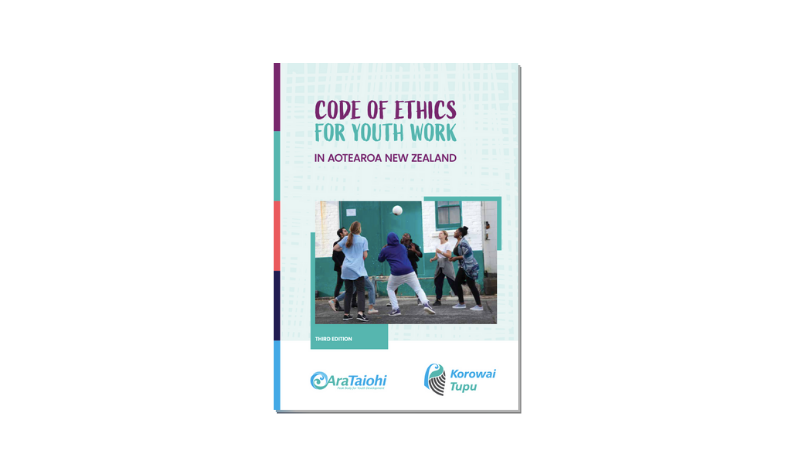With young people we uphold and extend manaakitanga, nourishing collective hauora.
Manaakitanga is expressing kindness and respect for others, emphasising responsibility and reciprocity. It creates accountability for those who care for young people, relationally or systemically. When we uphold and extend manaakitanga from a distance, safeguarding collective hauora includes adequate resources and training for people who work with young people. Young people who experience strong manaaki have a safe and empowering space, and feel accepted, included and valued.
He taonga rongonui te aroha ki te tangata
Goodwill toward others is a precious treasure
(Mead & Grove, 2004)
18. Kia aroā | Self-awareness
18.1 Youth workers and their organisation take responsibility for the youth worker’s overall hauora.
18.2 Youth workers actively reflect on their practice with others and maintain support from supervision and co-workers.
18.3 Youth workers are aware of any personal circumstances that may affect their ability to work safely and effectively.
18.4 Youth workers understand and reflect on their own culture, values, attitudes and beliefs, and the impact of these on young people. Where this creates conflict in the Youth Work relationship, a youth worker may refer the young person to a more appropriate support person. The relationship with the young person should be maintained during this process, with consideration for who is the most appropriate person to do so.
19. Āu ake whāinga | Personal agendas
19.1 Youth workers do not abuse their Youth Work relationships for personal, professional, religious, political or financial gain.
19.2 While youth workers may agree or disagree with other’s beliefs, values and behaviour, they will treat all people with respect and dignity.
19.3 Youth workers do not abuse their position to manipulate young people to their political, religious, ethnic or cultural beliefs, or to specific communities.
20. Haumaru | Safety
20.1 The holistic safety of young people is paramount within the Youth Work relationship.
20.2 On the rare occasion where a young person is unable to act with self-determination, youth workers act to protect the young person’s rights and welfare.
20.3 Youth workers acknowledge their organisation’s legal responsibilities and policy requirements, including the Health and Safety in Work Act 2015 and the Vulnerable Children’s Act 2014.
20.4 Youth workers and their organisations ensure that appropriate risk management procedures are followed.
20.5 Where there is a concern about the safety of a young person and/or the practice of someone who works with them it must be brought to the attention of the organisation, any relevant professional association and/or other appropriate bodies.
NextWhai Wāhitanga